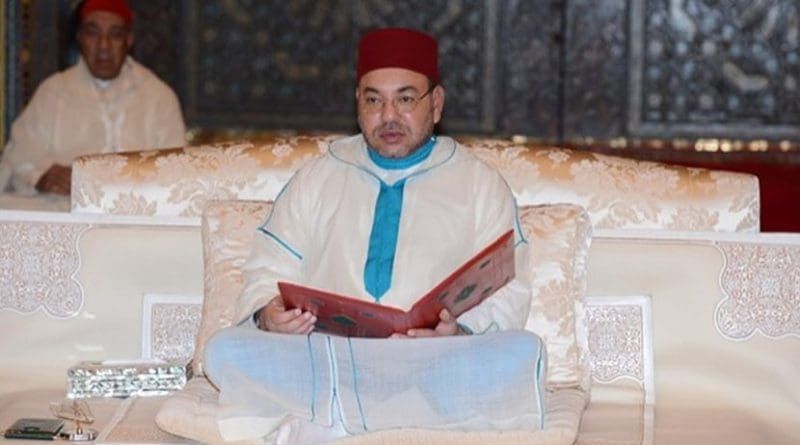Ramadan Lectures To Promote The True Values Of Islam – OpEd
Every year in Ramadan King Mohammed VI presides over a series of highly important religious lectures known as Al-Dourous Al- Hassaniyah. A Ramadan tradition that started in 1963 by the late King Hassan II of Morocco, hence its name. For over 50 years, this forum has hosted prominent Muslim scholars and jurists from diverse sectarian and ideological backgrounds to discuss issues and concerns of the Muslim ummah. The Dourus are attended by the Moroccan King, the royal family, religious scholars, high-ranking state officials, and members of Muslim countries’ diplomatic missions to Morocco.
These lectures are an open forum to discuss the true values of Islam and prominent Muslim scholars from the five continent present relevant and progressive views about Islam to make it relevant and responsive to modern context. These lectures tend to offer Liberal and progressive interpretations which can answer effectively all doubts and confusions that need nuanced readings of the Qur’an and Sunna (sayings of the Prophet) in the light of multiple perspectives.
Guest scholars from different countries join efforts to spread anti-radicalism lessons and promote tolerance, happiness and building civilisations in these lectures.
Last Friday, a number of renowned and emerging scholars attended the inaugural lecture that was delivered by the Moroccan Minister of Endowments and and Islamic affairs Ahmed Toufiq on the theme “the rights of the spirit and its economic dimensions”, drawing on Surate Ashams, verses 7-10 “And the soul and He who proportioned it, and inspired it its wickedness and its righteousness, he has succeeded who purifies it, and he has failed who instills it”. Minister Toufiq recalled at the beginning of his speech that noteworthy scholars of the Islamic Ummah have studied all that is related to the rights of the soul in the Holy Quran and the Sunnah and distinguished between the absolute rights and the compound rights, noting that the latter are also the rights of Allah, His Prophet, the individual and the community.
The individual has first rights to himself then come the compound rights that naturally impact the community and especially its economic aspects, he said.
Toufiq then made it clear that the theme of this talk will be addressed based on four evidences and one conviction.
As for evidences, the speaker first cited the causal relationship between human behavior and economic choices. Second, he noted that human behavior manifests itself through politics, which is basically the management of human weakness. The third evidence, he went on to say, is to consent that human behavior depends on the desires of the soul of the individual which push him to consume, while the fourth conviction is related to the market as a meeting point between economy, politics and the soul.
He noted, as it is stated in the Quran, that the conviction is the fact of shaping the soul so that it can guide the behavior of men to ultimately build a lifestyle in which economy is just one dimension among others.
In this respect, the soul is defined as an acting force from which stems a certain behavior, said Toufiq, adding that Allah has sworn to shape the soul and make it pure and loving by nature.
The purification of the soul is the right of the soul from which several other rights derive and is therefore the foundation for building a healthy personality in terms of religion, he said.
Toufiq noted in this sense that the Holy Quran has warned against parsimony because it constitutes an injustice towards the soul and an attack on one of its fundamental rights, noting that piety, which involves the purification of the soul, is both the origin and the result of an economic choice imbued with the virtues of altruism and generosity.
During the whole holy month of Ramadan selected guest scholars will give their lectures in the presence of the King and senior scholars and personalities from the kingdom to tackle timely issues and themes of paramount importance and will look into modern fiqh (Islamic law and science) issues, and modern religious speech. There are several lectures a week and prominent scholars from around the world are invited to deliver some of the lectures every year.
A well-timed Royal initiative that aims to disseminate the true values of Islam: tolerance, coexistence and true love contrasting starkly with radical “takfirist” ideology and to focus rather on the core values of Islam and its impact on of the lives of the people. This royal tradition aims to honor Muslim scholars of religion from around the world. The Ramadan lectures (Duruss Al Hassaniya) also follow a long Islamic tradition where scholars lecture to political leaders and the public at large on relevant and topical issues of the day in the form of academic teaching and moral counseling.

